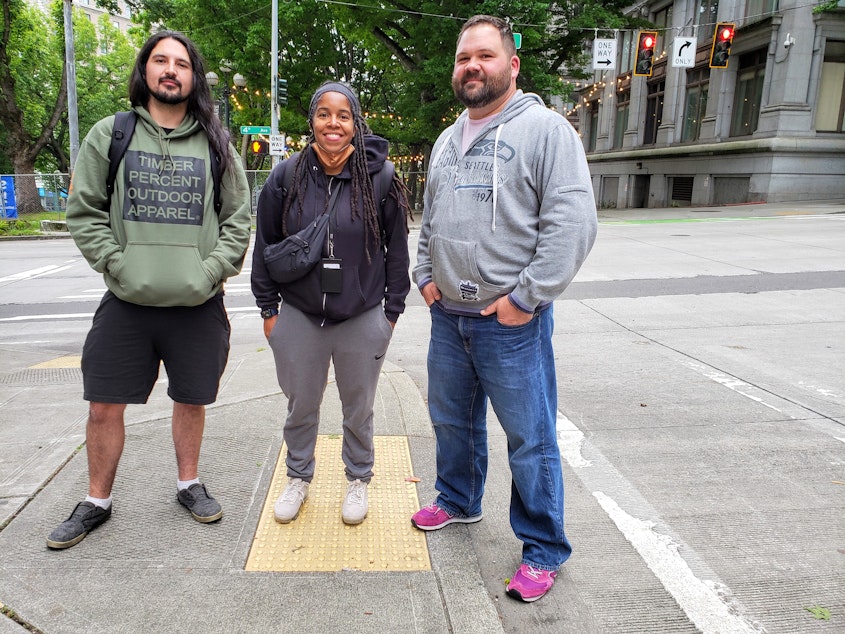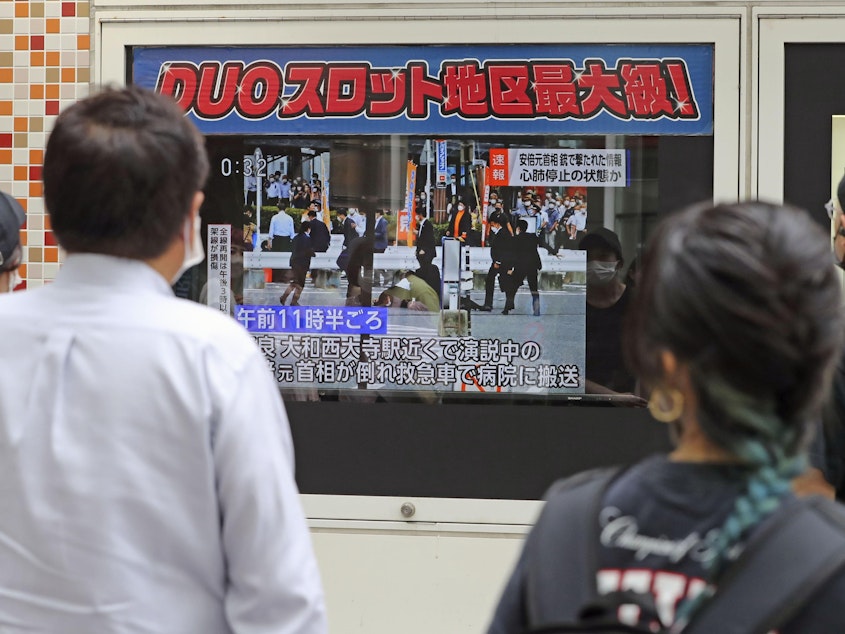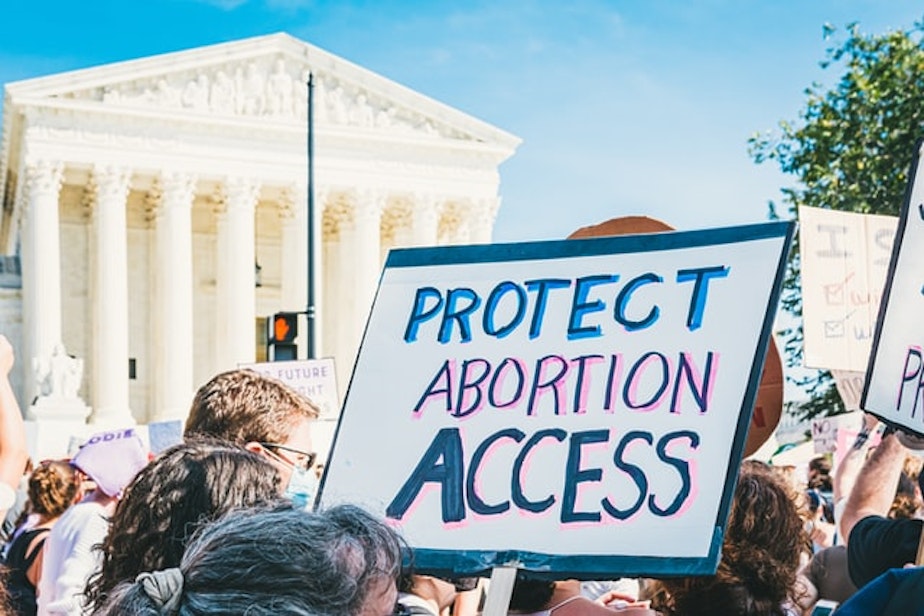Seattle's new approach to help those experiencing homelessness: Today So Far

- People who have previously experienced homelessness in Seattle are helping reach out to others still on the street. It's a homelessness response that is slated to expand further into King County.
- The inquest into the killing of Charleena Lyles concluded this week and found that Seattle officers were justified.
This post originally appeared in KUOW's Today So Far newsletter for July 8, 2022.
It's takes one to help one. That's the idea behind a new effort in Seattle. People who have been homeless themselves are being dispatched to the streets to help people going through what they once did. People like Kirk Rodriguez.
"People who have experienced homelessness know the most about it,” Rodriguez told KUOW. "And just how to approach systems, how to navigate them, issues people interact with not just at face value, not just that like understanding from reading or hearing about it but having actually lived it."
As Casey Martin reports, this new effort is up and running in Seattle right now. This summer, it will expand through King County with about 30 peer counselors. Read the full story here.
The inquest into the fatal shooting of Charleena Lyles by Seattle police concluded this week that officers' actions were justified. It's a conclusion that Lyles' family disagrees with. You can read more about that here. Ever since the incident in 2017, and through this inquest process, there has been one part of this story that has stuck with me — what happens when police respond to people with mental illness.
In 2010, Douglas Ostling called 911 amid a mental crisis at his family's home on Bainbridge Island. When police arrived, they found Ostling with an axe in his studio apartment above the family's garage. They shot and killed him. In the wake of the shooting, the family contested the police's initial version of events. Turns out, officers shot Ostling through his door, then withheld medical aid for more than an hour as he bled to death. Two years later, a jury determined that Bainbridge Island did not adequately train its officers to handle calls involving mentally illness. The family was awarded $1 million. A federal judge concluded that police should not have withheld medical aid. In 2015, Gov. Jay Inslee signed the Douglas M. Ostling Act which requires law enforcement to take training on how to de-escalate situations involving people suffering from mental illness. As for the shooting itself, officers were justified.
In 2020, Redmond police officers shot and killed Andrea Churna. Churna called 911 while suffering from a mental crisis. She had a firearm during the police encounter, however, it was not in her possession when she was fatally shot by police. Redmond paid $7.5 million for "serious errors" in that incident.
And in 2017, officers knew that Charleena Lyles had a history of mental illness when she called 911 and asked them to respond to a burglary. They spoke about it while they were walking up to her apartment, discussing previous encounters with Lyles.
"So this gal, she was the one making all these weird statements about how her and her daughter were going to turn into wolves ... it just took a turn," one officer said on recorded dash cam video of the incident.
During the inquest, officers spoke about an "officer safety caution" that was noted in SPD's system at the time, due to a previous encounter with Lyles just two weeks before. They knew mental illness was a potential factor, and they didn't plan for any non-lethal responses, such as a stun gun.
Following the inquest's conclusion this week, the Lyles' family lawyer stated: "SPD’s policies, practices and procedures are designed specifically to allow an officer to shoot and kill a person in mental crisis with a paring knife. In those circumstances officers are not trained to disarm. They are not trained to wound. They are trained to shoot to kill."
While these incidents may share similarities, they each have their own unique layers of complexity. They all ended with police shooting a person suffering from mental illness. I'm not going to pretend to know any grand solutions, nor will I claim any expertise aside from following these stories as a reporter. But I can at least understand this: These situations all started when guns were the response to a person suffering from mental illness.
AS SEEN ON KUOW

People in Tokyo watch TV news reporting Japan's former Prime Minister Shinzo Abe was shot on Friday. Abe was assassinated while making a speech at a campaign event. The suspected shooter was arrested. (Associated Press)
DID YOU KNOW?
Actor James Caan passed away this week at the age of 82. Whatever generation you are from, you likely know Caan from something — from his days in 1960s TV, to "Brian's Song" and "The Godfather" in the '70s. Most nerds like me will always be fond of his role in "Elf."
Caan was an on-screen tough guy. But he was also pretty rough and tough off screen. He practiced Gosoku Ryu Karate for 40 years, studied under Karate legend Takayuki Kubota, and worked his way up to sixth-degree black belt.
He also competed in professional rodeo as a heeler in roping competitions (that's the second guy on a horse with a rope). He once commented that he liked the rodeo circuit because of the way they treated him, not as a Hollywood actor, but as someone who had to earn their respect, which he did.
“I think I can safely say, I was the only Jewish cowboy from New York on the professional rodeo cowboy circuit," he once said.
ALSO ON OUR MINDS

A new executive order aims to preserve abortion access, but its reach is limited
President Biden will sign an executive order to take some incremental steps to try to preserve access to abortion services after the Supreme Court overturned Roe v. Wade two weeks ago.

